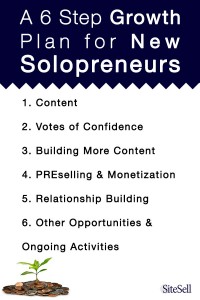
The Millennial generation, those born between 1982 and 2000, is the first generation to come of age this century and the last generation to remember life before the Internet. But this group brings more distinctions than this, many of which are affecting their reputation in the workplace. A recent article in INC, 3 Reasons Millennials Are Getting Fired, illustrates the growing disconnect between Millennials’ performance and employers’ expectations.
Of course, not all Millennials are a lost cause.
Despite their shortcomings, whether real or perceived, they also bring many positive traits that can be an asset to employers. The key is for employers to recognize those traits and use them to benefit their company, instead of letting the employee go.
While there are certainly legitimate reasons to fire an employee, the cost of doing so is significant, and the decision shouldn’t be taken lightly.
If you have Millennial employees you believe you can work with, here are three alternatives to firing millennials.
1. Improve Your Hiring and Promotion Process
If you’ve noticed a pattern of new employees who didn’t meet expectations, it might be time to reassess your hiring process.
A robust, data-driven assessment process is one way to screen out Millennials who are not a good fit. The interview should include a combination of behavioral questions to give you insight into how candidates would respond in different circumstances, situational judgment tests and personality tests that reveal characteristics, motivations and shortcomings. This will give you a better understanding of the candidate and how he or she would be an asset to your company.
2. Pair Millennials with Mentors
Millennials grew up being coached and carry this mentality with them into the workforce. While employers may view this as hand-holding, providing regular feedback is an important part of a leader’s interactions with all workers. Pairing newer employees with more seasoned colleagues makes it easier for employees to receive the coaching they expect. It also helps them adjust to your company culture.
But beyond answering questions, Millennials want someone who can help them shape their career path and sharpen their skill set. Millennials welcome the chance to work with someone who can look at their work from a fresh perspective and give them an honest evaluation between annual performance reviews.
3. Prepare Millennials to Succeed with Leadership Training
Let’s face it: Any employee wants to know there is upward mobility at the company where they work, and Millennials are no exception. Preparing them to step into those leadership roles in the future is crucial to the success of the company and an important factor in retention. Having the right leaders boosts employee morale and keeps turnover costs down.
To best train this newer generation, consider alternatives to traditional methods. Millennials are proficient in technology, so taking advantage of e-learning courses and other formats to present training is a great way to get started. Allowing Millennials to demonstrate their knowledge through activities such as scenario-based role-playing will allow the employer to understand their thought process when handling issues and open a discussion for ways the employee can improve.
Of course, sometimes termination is unavoidable. No amount of training will fix an employee who is lazy, has a bad attitude or isn’t dependable. Before you cut someone loose, ask yourself if they are truly a poor performer or just poorly trained.
To learn more about how you can help Millennials achieve their full potential and maximize their performance, download this free eBook, Developing Future Leaders: Preparing Millennials for 21st Century Challenges.
Business & Finance Articles on Business 2 Community
(113)




